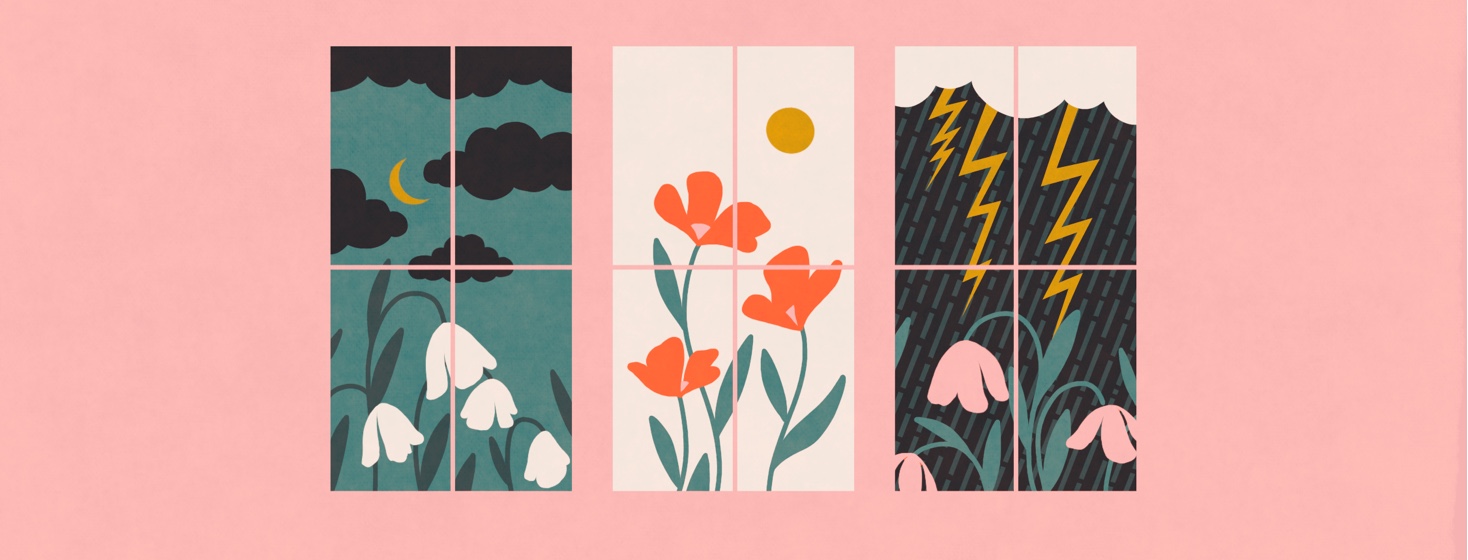Struggling with Depressive Episodes and MS
Whether or not a person has MS, mental health issues affect a lot of people all across the globe. These mental health issues can range from depression to anxiety to OCD to more. I have struggled with all three of these issues for most of my life, but after I was diagnosed with MS and have gotten older, I noticed how these issues can manifest in different ways and be extremely frustrating.
Depression can be common with MS
Anxiety seems to be my chronic “mainline” issue while depression is usually more secondary. Let’s call these depressive issues.
Depression is a common symptom of MS. I think maybe it could be up there with fatigue as among the most common symptoms people struggle with when living with MS.1
Many doctors and society in general tend to think of or focus on the physical issues/limitations caused by MS. To this day, many doctors do not even ask their patients about mental health, and patients do not always bring it up. Patients may not realize they are experiencing depression or depressive episodes. If they do, they may not correlate it to MS, or they could be embarrassed to bring it up. There lies the stigma that is still prevalent to this day.
Therefore, depression and other mental health conditions can go underdiagnosed and untreated. All of this is unfortunate.
When depressive episodes hit me
Depression with MS can be linked to a combination of things such as specific locations where lesions are found in the brain, inflammation changes, immune system changes, and the stress that goes along with the unpredictable ups and downs of living with MS. This can escalate even further when a patient is dealing with other chronic illnesses or life stressors in general.1
Depressive episodes can pop up anytime. I can attest to this. As I mentioned earlier, anxiety is a biggie for me and it’s often a daily struggle to manage or control. When depressive episodes hit me, it’s usually when I’ve overextended myself and have “crashed and burned,” leaving my brain fried and me in bed and fatigued to the point of becoming nearly non-functional.
I can usually deal with this for a short while, but if it lasts longer than a week, depression can creep in and will take over with a vengeance. I also have chronic issues with IBS and like MS, these flares can be unpredictable and are sometimes all-consuming for days, weeks, or longer. When these issues are at their worst, my mood becomes noticeably altered, and I shut down.
I hate these episodes
I stop caring about what I want to do and what I need to do (i.e., showering, brushing my teeth, answering the phone, checking emails, eating properly, etc.). My sleep habits change, I cancel appointments and plans with others, etc. I HATE these episodes, but they do come into my life from time to time. Sometimes I’ve found myself dangerously close to falling down the rabbit hole of darkness, and that’s a scary place to be.
More often than not, I’ll eventually get sick and tired of being sick and tired and will start to crawl out of my depressive cave. Is this a will-power thing or state of mind over matter? I’m not sure. Depression and anxiety run in my family on both sides. Come to think of it, my dad used to go through similar depressive episodes, too. He does not have MS, but whenever he would go through his episodes, he would shut down completely, not talk to anyone, and kept his distance.
Then, out of nowhere there would come a day where he’d sort of “snap out of it” and turn back into the same ole’ fun and loveable fellow we all knew as Dad. These episodes were confusing and frustrating for all us kids as well as my mom and stepmother, that’s for sure! I’m able to understand all of this a bit better these days.
Featured Forum
View all responsesSymptoms to watch out for
There’s a difference between depression and the sadness, grief, and other painful life events that everyone goes through in life. As a whole, most people with MS will experience grief, loss, and sadness due to having this disease in and of itself. For some, this can be considered a mild, tolerable form of depression and is considered quite common. For others, it can escalate into something more serious.
Depressive episodes can certainly ebb and flow when living with MS and/or other chronic illnesses. It’s normal, and everyone reacts differently to such feelings and emotions. However, if you find your thoughts, feelings, and behavior changes lasting beyond several weeks, this could be a warning sign.1
Symptoms of depression might include:1
- Lingering sadness, agitation, and irritability
- Loss of interest in activities
- Changes in appetite
- Sleep hygiene changes/insomnia
- Increased fatigue
- Feelings of worthlessness or guilt
- Decrease in focus or concentration
- Thoughts of self-harm or suicide
You're not alone
It’s important to pay attention to your mood changes and recognize when/if it’s time to seek help. Sometimes patients find cognitive behavioral therapy (CBT) or medication to be helpful. Creative expression, therapeutic outlets, interaction with others, and engaging in some form of physical activity can be healthy and helpful as well. Find something… whatever works best for you.
Lastly, always remember you’re not alone. There are many others who might be going through the same thing as you. They can relate and might be able to offer comfort. Support is out there!

Join the conversation